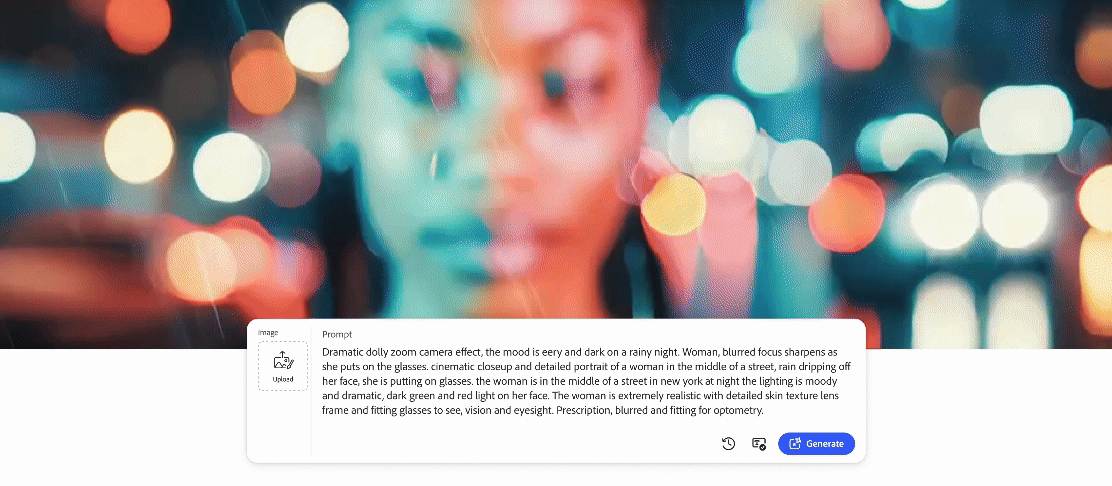Adobe Firefly | Text-to-Video AI Model Development
generative AI creative strategy | creative direction, dataset development & curation | content quality & responsible AI

Challenge
Adobe Firefly’s text-to-video model needed high-quality, ethically sourced video datasets to support model training—ones that could teach the system to render realistic motion, cinematic aesthetics, and diverse lighting conditions, all while ensuring commercial safety and aligning with Adobe’s commitment to responsible AI. The challenge was to source and create content that elevated visual fidelity and met strict legal and ethical standards.
Approach
I led the creative strategy and guided my team of visual creatives in developing creative briefs and content guidelines that informed commissioned, crowdsourced, and acquired content for training text-to-video generative AI models. Working closely with Adobe Firefly roduct engineers, Legal, and the Content Business Development team, I translated technical model needs into clear, actionable creative direction focused on:
Cinematic style and visual tone
Lighting and atmospheric elements
Human and object motion across varied perspectives and camera angles
Content types and subject matter, including animation styles, b-roll, special effects, and atmospheric visual elements (e.g., smoke, fire, particles)
These categories were carefully selected to help the model better interpret realistic motion, spatial depth, and environmental nuance—enabling more expressive, dynamic, and believable video generation.
Impact
Improved the model’s ability to depict bodies and objects in motion across diverse camera angles and cinematic lighting scenarios
Helped ensure that all training content was commercially safe, legally cleared, and ethically sourced, setting Firefly apart from competitors relying on scraped internet data
Contributed to the successful public beta release of Firefly’s text-to-video tools in 2024, including features like generative b-roll and clip extension in Adobe Premiere Pro
See It in Action
A look at how the Firefly text-to-video model has evolved—featuring cinematic lighting, fluid motion, and generative b-roll.



